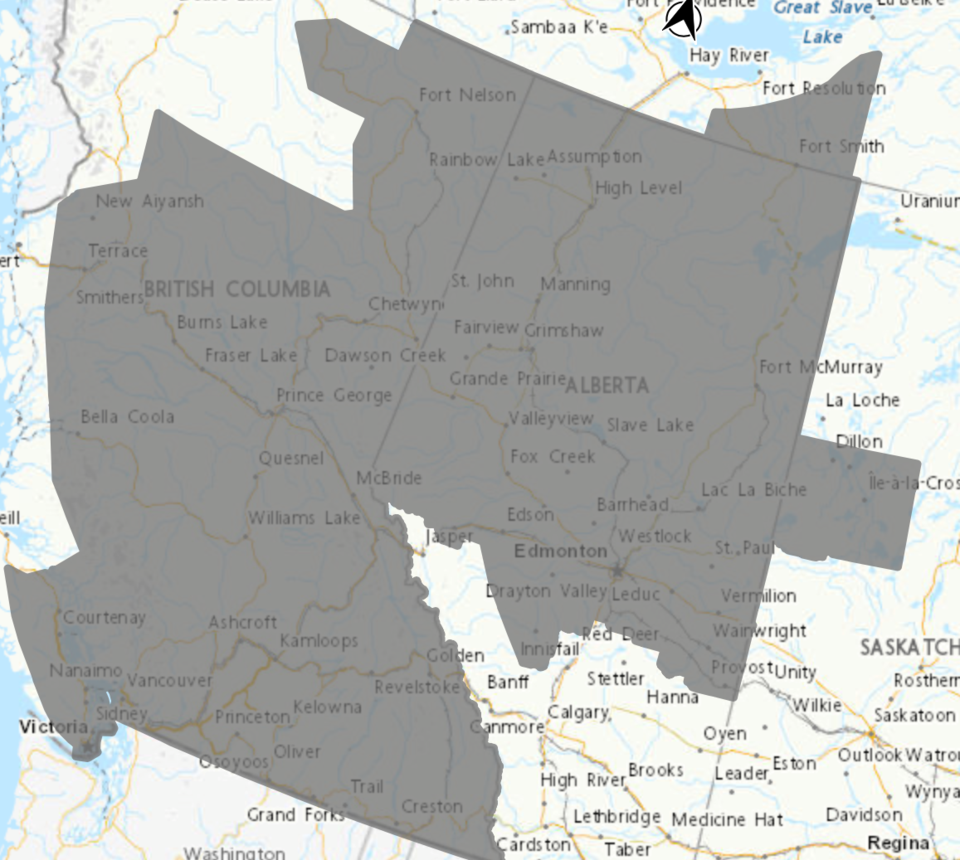Environment and Climate Change Canada has issued a “special weather statement” for the St. Albert, Edmonton, and Sherwood Park areas heading into the weekend and early next week as an extended period of dry and hot weather is expected to roll in.
The weather alert, issued early Friday morning, says the temperature is expected to reach almost 30 C on Sunday, and daytime temperatures are not expected to cool off until Wednesday, May 17.
“With elevated temperatures, the risk of heat-related illnesses will increase,” the statement reads. “Maximum daytime highs will be close to 30 C which would be 10 to 15 C above seasonal values.”
Overnight temperatures are only expected to drop to a low of 13 C, Environment and Climate Change Canada (ECCC) is forecasting.
According to ECCC's historical weather data, if St. Albert sees temperatures above 28C on Sunday it would be the hottest temperature recorded on May 14 since 2018, when temperatures reached 27.4 C.
The 30 C bench mark would not be warm enough to break historical extremes in the region however, as the ECCC's data states that on May 14, 1924, the temperature reached 31.1 C.
A similar special weather statement was also issued in other parts of western Canada, including the city of Lethbridge and much of British Columbia.
Officials preparing for wildfire growth
In advance of the hot temperatures expected this weekend, the provincial government announced on May 11 that members of the Canadian military are being deployed in three municipalities in order to support firefighting efforts.
Armed Forces members will set up operation centres in Drayton Valley, Grande Prairie and Fox Creek, all of which have been heavily impacted by the recent wildfire emergency in Alberta.
Drayton Valley residents, who were evacuated over a week ago on Thursday, May 5, won't be able to return home for at least another week, according to a Facebook post made on the town's official account May 12.
Unlike Drayton Valley, residents of Grande Prairie proper haven't been evacuated, however residents in certain parts of the surrounding County area were evacuated last week, and allowed to return home on May 11. Despite the evacuation order being lifted, residents who returned home are still under an evacuation alert, meaning they must be prepared to leave with 30 minutes notice.
Fox Creek, which is roughly a 2.5 hour drive northwest from St. Albert, remains evacuated, with officials extending the evacuation zone on May 11 to include the Hamlet of Little Smoky and the Municipal District of Greenview.
On Friday morning the town posted on Facebook that the local fire department and Alberta Wildfire officials were preparing for the fire to “grow significantly today.”
Despite much of Alberta seeing heavy rainfall throughout the week, the town posted on Facebook on May 11 that “rainfall here has been a fraction of what we need.”
“Monday is now our next critical day and the earliest the Emergency Response Team will be able to re-assess.”
As of noon on May 12 there were 74 active wildfires in Alberta, with 20 being considered out of control, 37 considered under control, and the remaining 17 currently being held.




